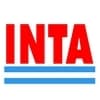Bioquimica de la sintesis de grasa en ovinos
Publicado: 20 de agosto de 2006
Fuente: hilda flores brito
Mencionados en esta noticia:
Recomendar
Comentar
Compartir
7 de septiembre de 2006
Hola Amiha Hilda.
Estos libros ofrecen la posibilidad de profundizar en lo tratado. Los primeros son de divulgación, o muy sencillos, y los dos últimos más especializados.
Peña, A. Las membranas de las células. La Ciencia desde México. Fondo de Cultura Económica, SEP, CONACYT, México, 1986.
Peña, A. y G. Dreyfus. La energía y la vida. La Ciencia desde México. Fondo de Cultura Económica, SEP, CONACYT, México, 1990.
Peña, A. Fisiología 1. Consejo Nacional para la Enseñanza de la Biología, Editorial Continental, México, 1983.
Peña, A. Química biológica. Consejo Nacional para la Enseñanza de la Biología. CECSA, México, 1983.
Laguna, J. y E. Piña. Bioquímica. La Prensa Médica Mexicana, México, 1990.
Peña, A., A. Arroyo, A. Gómez-Puyou, C. Gómez y R. Tapia. Bioquímica, segunda edición. Limusa, 1988.
Aalborg, G., and P. Felig (1976). Influence of glucose ingestion of fuel-hormone response during prolonged exercise. J. Appl. Physiol. 41: 683-688.
Bailey, S.P., J.M. Davis, and E.N. Ahlborn (1993). Neuroendocrine and aubatrate responses to altered brain 5-HT activity during prolonged exercise to fatigue. J. appl. Physiol. 74: 3006-3012.
Burgess, W.A., J.M. Davis, W.P. Bartoli, and J.A. Woods (1991a). Failure of low dose carbohidrate feeding to attenuate glucoregulatory hormone responses and improve endurance performance. Int. J. Sport Nutr. 1: 338-352.
Burgess, M.L., R.J. Robertson, J.M. Davis, and J.M. Norris (1991b). RPE, blood glucose, and carbohidrate oxidation during exercise: effects of glucose feedings. Med. Sci. sports Exerc. 23. 353-359.
Coggan, A.R., and E.F. Coyle (1987). Reversal of fatigue during prolonged exercise by carbohidrate infussion or ingestion. J. Appl. Physiol. 6:2388-2395.
Coyle, E.F., J.M. Hagberg, B.F. Hurley, W.H. Martin, A.A. Ehsani, and J.O. Holloszy (1983). Carbohidrate feeding during prolonged exersice can delay fatigue. J. Appl. Physiol. 55: 230-235.
Davis, J.M., V.E. Cokkinides, W.A. Burgess, and W.P. Bartoli (1989). Effects of a carbohidrate-electrolyte drink or water on stress hormone response to prolonged intense cycling: renini, angiotensin I, aldosterone, ACTH, and cortisol. In: Z. Laron and A.D. Rogal (eds.) Hormones and Sport. New york: Raven Press, pp. 193-204.
Davis, J.M., S.P. Bailey, J.A. Woods, F.J. Galiano, M. Hamilton, and W.P. Bartoli (1991). Effects of carbohidrate feedings on plasma free-tryptophan and branched-chain amino acids during prolonged cycling. Eur. J. Appl. Physiol. 65: 513-519.
Davis, J.M. and R. Fitts (1998). Mechanisms of muscular fatigue. In: J.L. roitman (ed.) ACSMs Resource Manual for Guidelines for Exercise Testing and Prescription. Baltimore: Williams & Wilkins, pp. 182-188.
Davis, J.M. (2000). Nutrition, neurotransmitters and central nervous system fatigue. In: R.J. Maughan (ed.), Nutrition in Sport. Oxford: Blackwell Science Ltd, pp. 171-183.
De Feo, P., V. Gallai, G. Mazzotta, G. Crispino, E. Torlone, G. Perriello, M.M. Ventura, F. Santeusanio, P. Brunetti, and G.B. Bolli (1988). Modest decrements in plasma glucose concentration cause early impairment in cognitive function and later activation of glucose counterregulation in the absebse of hypoglycemic symptoms in normal man. J. Clin. Invest. 82: 436-444.
Francesconi, R.P. (1988). Endocrinological responses to exercise in stressful enviroments. In: K.B. Pandolf (eds.), Exercise and Sport Science Reviews, Vol. 16. New York: MacMillan, pp. 225-284.
Fritzsche, R.G., T.W. Switzer, B.J. Hogkinson, S.H. Lee, J.C. Martin, and E.F. Coyle (2000). Water and carbohidrate ingestion during prolonged exercise increase maximal neuromuscular power. J. Appl. Physiol. 88: 730-737.
Galbo, H. (1992). Endocrine factors in endurance. In: R.J. Shephard and P-O. Astrand (eds.) Endurance in Sport. Oxford: Blackwell Scientific Publications, pp. 116-126.
Gandevia, S.C. (1999). Mind, muscles and motoneurones. J. Sci. Med.Sport. 2: 167-180.
Hargreaves, M. (2000). Carbohidrate replacement during exercise. In: R.J. Maughan (ed.) Nutrition in Sport. Oxford: Blackwell Science Ltd., pp. 112-118.
Jones, T.W., G. McCarthy, W.V. Tamborlane, S. Caprio, E. Roessler, D. Kraemer, K. Starick-Zych, T. allison, S.D. Boulware, and R.S. Sherwin (1990). Mild hypoglycemia and impairment of brain stem and cortical evoked potentials in healthy subjects. Diabetes. 39: 1550-1555.
Kjaer, M. (1992). Regulation of hormonal and metabolic responses during exercise in humans. In: J.O. Holloszy (ed.), Exercise and Sport science Reviews, Vol. 20. New York: Williams & Wilkins, pp. 161-184.
Merbis, M.A., F.J. Snoek, K. Kane, and R.J. Heine (1996). Hypoglycemia induces emotional disruption. Patient Educ. Couns.29: 117-122.
Mitchell, J.B., D.L. Costill, J.A. Houmard, M.G. Flynn, W.J. Fink, and J.D. Beltz (1990). Influence of carbohidrate ingestion on counterregulatory hormones during prolonged exercise. Med. Sci. Sports Exerc. 23: 713-718.
Murray, R., W.P. Bartoli, D.E.Eddy, and M.K. Horn (1995). Physiological and performance responses to nicotinic-acid ingestion during exercise. Med. Sci. Sports Exerc. 27: 1057-1062.
Nieman, D.C., J.C. Ahle, D.A. Henson, B.J. Warren, J. Suttles, J.M. Davis, K.S. Buckley, S. Simandle, D.E. Butterworth, O.R. Fagoaga, and S.L. Nehlsen-Cannarella (1995). Indomethacin does not alter natural killer cell response to 2.5h of running. J. Appl. Physiol. 79: 748-755.
Nieman, D.C., S.L. Nehlsen-Cannarella, O.R. Fagoaga, D.A. Henson, A. Utter, J.M. Davis, F. Williams, and D.E. Butterworth (1998). Influence of mode and carbohidrate on a cytokine response to heavy exertion. Med. Sci. Sports Exerc. 30: 671-678.
Tabata, I., F. Ogita, M. Miyachi, and H. Shibayanna (1991). Effect of low blood glucose on plasma CRF, ACTH, and cortisol during prolonged physical exercise. J. Appl. Physiol. 71: 1807-1812.
Thuma, J.R., R. Gilders, M. Verdun, and A.B. Loucks (1995). Circadian rhythm of cortisol confounds cortisol responses to exercise: implications for future research. J. Appl. Physiol. 78: 1657-1664.
Utter, A.C., J. Kang, D.C. Nieman, F. Williams, R.J. Robertson, D.A. Henson, J.M. Davis, and D.E. Butterworth (1999). Effect of carbohidrate ingestion and hormonal responses on ratings of percieved exertion during prolonged cycling and running. Eur. J. Appl. Physiol. 80: 92-99.
Wasserman, D.H., and A.D. Cherington (1996). Regulation of extramuscular fuel sources during exercise. In: L.B. Rowell and J.T. Shepherd.
Saludos.
MV Rafael Montero
Recomendar
Responder
1

¿Quieres comentar sobre otro tema? Crea una nueva publicación para dialogar con expertos de la comunidad.




